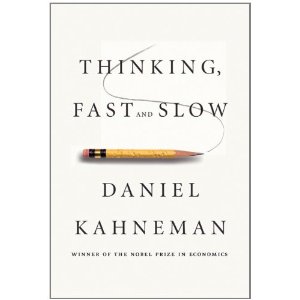Posts Tagged ‘cognitive illusions’
Study examines common cognitive biases (have you tried this brain teaser?) and ways to mitigate them
A fascinating new study, Tversky and Kahneman’s Cognitive Illusions: Who Can Solve Them, and Why?, probes into the cognitive “heuristics and biases” researched by Daniel Kahneman and Amos Tversky since the late 1960s. If you have never encountered the “Linda brain teaser” before, please give it a try: Linda is 31 years old, single, outspoken, and very…
Read MoreUpdate: Time to become mental capitalists and invest in our brains?
Time for the November edition of the monthly SharpBrains eNewsletter, featuring a wealth of resources and insights on how to invest in our brains, including topics such as brain health, meditation, neuropsychology, brain training games, chemo brain, dyslexia, neuroplasticity, cognitive biases, stress, and more. Not to forget a couple of fun teasers. Enjoy! Brain Fitness Q&A…
Read MoreHow cognitive illusions blind us to reason
Fun article by Daniel Kahneman based on his new book,Thinking, Fast and Slow. How cognitive illusions blind us to reason (The Guardian): Why do Wall Street traders have such faith in their powers of prediction, when their success is largely down to chance? Daniel Kahneman explains. — “Looking back, the most striking part of the…
Read More

